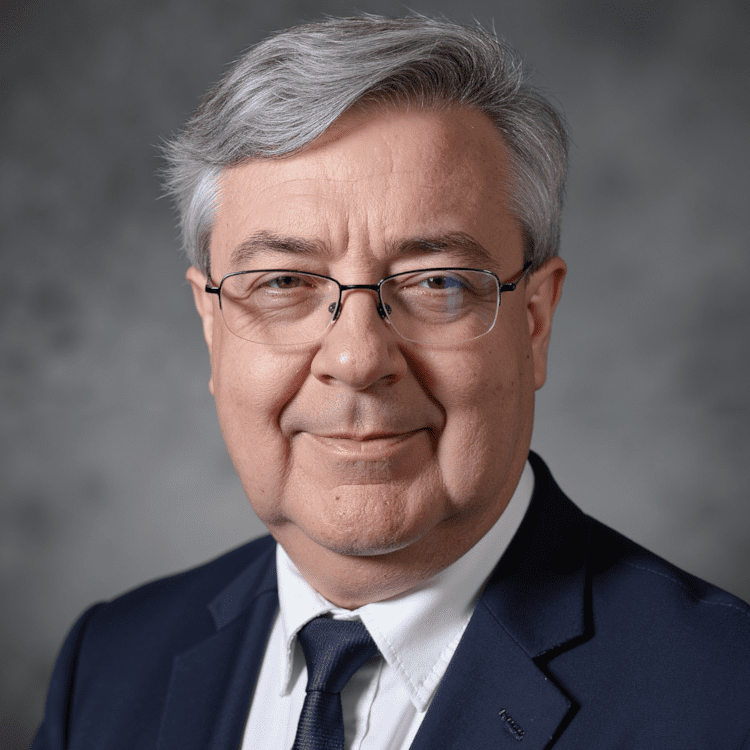Relating the Mission of God to Equitable Service Delivery
Introduction
The call to address disparities in service provision is integral to the mission of God, especially in today’s world, where inequality and marginalization are widespread. A missional leader is not only tasked with preaching the gospel but also with working toward fairness, equity, and holistic care in all spheres of life. The behaviors outlined in this essay—ranging from pastoral care and chaplaincy to community health, community development, social work, and behavioral rehabilitation—reflect the diverse ways in which missional leaders can confront and address disparities in service provision within a gospel-centered witness. These actions are not just about meeting immediate needs but about advocating for lasting changes that promote dignity, fairness, and equality for all people. The biblical principles woven throughout these behaviors underscore the importance of compassionate action, rooted in the teachings of Jesus, which call on His followers to serve the marginalized and advocate for justice. This essay explores how missional leaders can embody these values by applying biblical insights to various fields of service, ensuring that everyone has equal access to care, resources, opportunities, and redemption through the power of the gospel.
1. Compassionate Advocacy: Targeted Interventions and Advocacy for Underserved Communities
In pastoral care and chaplaincy, the mission of God requires a proactive and empathetic stance toward those who have been historically underserved or marginalized. A missional leader must develop targeted interventions that take into account not only the immediate needs of individuals but also the social, emotional, and spiritual challenges that accompany their circumstances. Advocating for underserved communities involves creating safe spaces for healing, providing spiritual guidance, and ensuring that people are not left behind. This approach requires the missional leader to understand the specific struggles of each community—whether based on race, class, or past trauma—and offer interventions that are tailored and thoughtful, aligning with both the compassion of Christ and the need for justice in the world.
Biblical Illustration
In the cultural context of first-century Israel, hospitality and charity were seen as vital components of religious identity, especially in the face of Roman occupation. Jesus’ audience would have understood the dire consequences of neglecting the marginalized—especially those who were not afforded rights or protections under Roman law. The marginalized, such as the poor, prisoners, and strangers, were often seen as expendable in society. In Matthew 25:31–46, Jesus presents the parable of the sheep and the goats, illustrating the final judgment. He separates the righteous (the sheep) from the unrighteous (the goats), based on how they responded to the needs of others. The righteous are those who saw the hungry, thirsty, naked, and imprisoned and provided for them, saying, “Whatever you did for one of the least of these brothers and sisters of mine, you did for me” (Matthew 25:40). In contrast, the goats represent those who neglected the vulnerable, failing to see that service to the marginalized is, in fact, service to Christ. By linking care for the marginalized with care for Christ, Jesus elevated the social importance of compassion, stressing that faith is reflected in action toward those most vulnerable.
Applications to Missional Careers in Pastoral Care & Chaplaincy
- Pastoral Care in Urban Ministry
Urban ministries often focus on marginalized populations in cities, such as the homeless, immigrant communities, and those living in poverty. Missional leaders can create outreach initiatives that not only address spiritual needs but also offer practical solutions such as food distribution, emotional counseling, and job placement services. These actions help to fulfill Christ’s mandate to care for the least among us. - Hospital Chaplaincy Outreach
In hospitals, chaplains are often called upon to minister to patients who are suffering from illness, loneliness, or despair. Chaplains can develop specialized care plans for underserved patients—such as those from low-income or immigrant backgrounds—ensuring that spiritual care is offered equitably to all. Advocacy for spiritual well-being can also include working with medical staff to address the unique cultural and emotional needs of patients.
2. Equality-Oriented Development: Analyzing Disparities in Service Provision
In community development, missional leaders are called to analyze the disparities between communities with similar characteristics, advocating for equitable resource distribution. This requires a commitment to justice, which means ensuring that both material and spiritual needs are met in ways that honor the dignity of all people. Community development goes beyond charity to include systemic change. A missional leader’s role involves engaging communities in the development of strategies that will eliminate the barriers that prevent access to services, such as education, healthcare, and economic opportunity. These strategies must be culturally sensitive, participatory, and designed to empower local populations.
Biblical Illustration
In first-century Jewish society, there was a clear social hierarchy based on ethnicity, language, and cultural practice. The Hellenistic Jews, who had been dispersed throughout the Greek-speaking world, often felt marginalized within the Jerusalem-based Jewish community. The division between Hellenistic and Hebraic Jews was reflective of broader social and cultural tensions of the time, where language and cultural heritage shaped one’s social standing. In Acts 6:1–7, the early church faces a dispute between the Hellenistic Jews (those who were Greek-speaking) and the Hebraic Jews (those who spoke Aramaic and adhered more strictly to Jewish customs). The Hellenistic widows were being overlooked in the daily distribution of food. The apostles, recognizing the injustice, appointed seven deacons to handle the distribution, ensuring that everyone’s needs were met fairly. The apostles’ decision to address this inequality directly, through structural change, was a radical move towards inclusivity and fairness. The apostles’ response to the issue is a model for addressing disparities in service provision, with a clear commitment to justice for all members of the community.
Applications to Missional Careers in Community Development
- Local Community Development Programs
Missional leaders working in urban or rural community development can apply this approach by evaluating the distribution of services, such as food, housing, and healthcare, ensuring that all communities—regardless of ethnic or socioeconomic background—have equal access. Strategies might include community organizing, advocating for local policy changes, and implementing inclusive programs. - Rural Health Outreach
In rural areas where healthcare is often limited or underserved, missional leaders can work with local churches and community organizations to create health outreach programs that prioritize equal access for all, especially marginalized groups. These efforts may involve mobile health clinics, educational initiatives, and community health workers who are culturally competent and committed to reducing health disparities.
3. Holistic Healing and Advocacy: Advocacy for Equitable Service Delivery
Behavioral health and rehabilitation require an understanding that recovery involves the whole person—mind, body, and spirit. Missional leaders in this area must ensure that interventions are equitable and responsive to the needs of diverse populations. This may involve advocating for underserved communities that face barriers to access, such as socioeconomic status, race, or disability. A holistic healing approach considers the root causes of behavioral health issues, recognizing that spiritual, emotional, and social factors often intersect with physical and mental health. Missional leaders are called to address these factors in a compassionate and systemic way, ensuring that healing resources are available and accessible to everyone, particularly those who are most vulnerable.
Biblical Illustration
In first-century Jewish culture, healing was often seen in both physical and spiritual terms. Illnesses were often associated with sin or spiritual impurity, and healing was seen as part of God’s kingdom breaking into the world. Jesus’ ministry directly challenged societal views that separated the physical from the spiritual, demonstrating that healing encompasses all parts of the human experience. In Luke 4:18–19, Jesus declares his mission to heal the brokenhearted, free the captives, and bring good news to the poor. This passage highlights Jesus’ holistic approach to healing, addressing physical, emotional, social, and spiritual needs. Jesus’ message was not just about offering salvation for the soul but about restoring people to wholeness in every aspect of their lives. This mission of holistic care can be applied in behavioral health, where addressing mental, emotional, and spiritual needs together is critical for long-term recovery. In today’s context, the cultural focus on individual well-being often isolates the spiritual and emotional from the physical, which can result in neglecting the whole person.
Applications to Missional Careers in Behavioral Health and Rehabilitation
- Mental Health Ministries
Missional leaders in behavioral health ministries can create mental health programs that focus on treating the whole person, incorporating counseling, faith-based practices, and community support to address mental health needs. This holistic approach can ensure that underserved populations have access to the care they need. - Substance Abuse Rehabilitation
In substance abuse rehabilitation, leaders can develop programs that treat addiction with a whole-person approach, addressing the emotional and spiritual needs of individuals. This approach can help break cycles of addiction by creating supportive environments where individuals can heal in every aspect of their lives.
4. Health Equity Advocacy: Addressing Disparities in Health Services
Community health leaders are tasked with addressing health disparities and advocating for the equitable distribution of health services, especially for underserved populations. This work requires a deep understanding of the structural barriers that prevent access to care—such as poverty, race, and geography—and the ability to engage with policy, community leaders, and healthcare systems to create meaningful change. Health equity advocacy involves both direct service provision and systemic change to ensure that everyone has the opportunity to achieve their full health potential, regardless of their background or circumstances.
Biblical Illustration:
In John 5:1–9, Jesus encounters a man who had been an invalid for 38 years, lying near the pool of Bethesda, hoping for healing. The pool of Bethesda was believed to have healing properties, and many people gathered there in hope of miraculous healing. However, the man was left out, isolated by his condition and by the social systems that prioritized others. While the man had been overlooked by others who waited for the waters to stir, but Jesus, seeing the man’s suffering, directly healed him. Jesus’ action—healing a man whom society had long ignored—illustrates God’s concern for the overlooked and marginalized in society. The healing wasn’t just physical; it was a restoration of dignity, equality, and access to wholeness. This story is a critique of societal structures that neglect the most vulnerable, underscoring Jesus’ message of inclusive healing for all people.
Applications to Missional Careers in Community Health Advocacy
- Health Education Outreach
Health advocates can create programs in underserved areas to educate communities on preventive health measures, such as proper nutrition, exercise, and disease prevention. These programs can be tailored to the cultural and socioeconomic context of the community, ensuring that everyone has access to vital health information. - Advocacy for Policy Change
Missional leaders can work with local and national governments to advocate for policies that address health disparities. This can include advocating for expanded healthcare access, greater funding for public health initiatives, and improved care for underserved communities.
5. Faith-Driven Social Justice: Addressing Service Delivery Disparities
Social work and faith-based community service demand a holistic approach to addressing disparities in services. Missional leaders in this field must not only advocate for policy changes but also engage directly with communities to ensure that the most marginalized receive care. A faith-driven social justice approach involves both supporting individuals in crisis and working for systemic change that ensures all people have equal access to services, regardless of their background. Social workers in faith communities should advocate for social policies that address inequities in housing, healthcare, education, and other essential services.
Biblical Illustration:
In James 2:14–17, James challenges believers with the notion that faith without works is dead. He asks, “What good is it, my brothers and sisters, if someone claims to have faith but has no deeds?” James writes to an early Christian community that was struggling with issues of poverty and inequality, where the wealthy often had the means to meet their own needs while the poor were left without support. The cultural context reveals a society divided by class, where the poor were often marginalized and had little access to resources. He explains that if someone is in need and believers do not offer practical help, their faith is empty. James’ call to action urges believers to move beyond abstract faith to demonstrate love through concrete deeds. This passage underscores the idea that true faith manifests itself through tangible actions—especially in serving those who are most in need.
Applications to Missional Careers in Social Work & Faith Community Service
- Homelessness and Housing Advocacy
Missional leaders can advocate for affordable housing and social services for homeless populations, ensuring that they receive support for both their physical needs and spiritual well-being. Working with local authorities and faith-based organizations, leaders can create systemic changes to reduce homelessness and provide long-term solutions. - Refugee and Immigration Services
Social workers in faith-based organizations can work to ensure that refugees and immigrants have access to the same services and support as the general population. This might include legal aid, healthcare, and counseling, as well as advocating for systemic change to protect the rights and dignity of these vulnerable groups.
Conclusion
In conclusion, addressing disparities in service provision is an essential part of living out a missional life. Whether through pastoral care, community development, behavioral health, or community health advocacy, missional leaders are called to serve with compassion and justice, ensuring that all individuals—especially those most marginalized—have access to the care, resources, and opportunities they deserve. By embedding biblical principles into these behaviors, leaders can help create a world where the love and justice of Christ are reflected in tangible, systemic change. As we follow the example of Christ, we too must advocate for those who are overlooked, working toward a world that is more just, equitable, and compassionate for all.

Dr. Curt Watke is a distinguished missiologist whose three-plus-decade-long career has significantly impacted Christian mission work in North America, particularly in under-reached and challenging regions. Holding a Ph.D. in Evangelism and Missions, Dr. Watke has focused on bridging cultural gaps and fostering sustainable Christian communities by developing innovative strategies that address contemporary challenges like globalization, urbanization, and religious pluralism. His emphasis on cultural sensitivity and contextualization in mission work is reflected in his collaborative writings, including notable works such as “Ministry Context Exploration: Understanding North American Cultures” and “Starting Reproducing Congregations.” Beyond his writing, Dr. Watke is a sought-after speaker and educator, lecturing at seminaries and conferences worldwide, and his teachings continue to inspire and equip new generations of missional leaders. His enduring legacy is marked by unwavering dedication to the mission of God and a profound influence on missional thought and practice. Dr. Watke serves as President and Professor of Evangelism & Missiology at Missional University.




